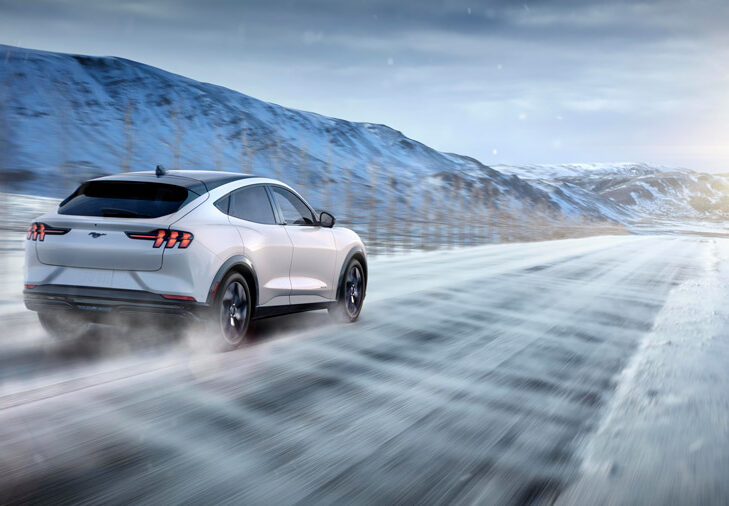
Ford: Climate change concerns aren’t translating into urgency
Trust is the foundation of any great relationship, whether it is a personal or business connection. Brand trust, an intangible asset, is more important than ever as companies seek truthful dialogue, access to data and information, as well as a boost in sales. Today, the consumer baseline is distrust, as individuals increasingly hold faceless brands in contempt. With the internet at one’s fingertips, advertising claims can be assessed and rebuked in an instant, creating a culture of mistrust.
A report published by the Ford Motor Company in December 2019 emphasises trust as the dominant theme with consumers and echoes a decline in the trust of institutions and brands. Sheryl Connelly, chief futurist at Ford Motor Company, suggests the business is entering uncharted territory, and trust is “integral if we are to move forward, together.” 2020 Looking Further with Ford Trends is the 8th edition of the annual report from the U.S. automaker, which is pursuing leadership positions in electrification, autonomous vehicles and mobility solutions.

It is not only trust in brands that is diminishing. The Ford report cites declining relationships with peers, asserting that “loneliness has become a global epidemic.” 62% of Gen Zers admitted to feeling lonely on a regular basis, with social media identified as one of the key contributing factors.
Survey results are based on 13,003 online interviews of individuals aged 18+ years across 14 countries which include: Australia, Brazil, Canada, China, France, Germany, India, Italy, Mexico, Saudi Arabia, Spain, United Arab Emirates, the United Kingdom and the United States. Research firm Harris Insights & Analytics supported Ford in conducting the study, with data collected between 8 November and 16 November 2019.
It is a pivotal time in Ford’s 117-year history. Building great products and services is no longer enough in the automaker’s ambitious quest to become the “world’s most trusted company.” The authors highlighted a need for a deeper understanding of customers and an end to traditional broad-based consumer marketing segments. Lasting relationships based on trust require understanding, empathy and truth.
But is it even possible for brands to create more meaningful ways to help people connect, and to combat the growing issue of loneliness? 62% of research participants claimed higher expectations of brands than they did in the past, with the majority suggesting companies don’t understand their needs well. Over half of respondents believe poor customer service is the norm, rather than the exception, further compounding the issue.

In recent years, it has become harder to trust what companies say and do. Suspiciousness, selectivity and scandals are widespread. The Ford research points to growing consumer interest in the unseen elements of building consumer trust — “below the surface.” A quality product, service and retail experience are highly visible. But consumers want the companies they support to be doing the right thing behind the scenes. Ford’s findings indicate three-quarters of research respondents care about responsible sourcing of materials. Beyond quality and price, customers want transparent manufacturing practices, ethical supply chains and the protection of the labour force. And the threat to businesses is real. Two-fifths of those surveyed have actively tried to dissuade friends and family from doing business with companies they don’t like.
Increasingly, brands seem to be trying to do the right thing. Or are customers forcing them to act more ethically? Customers are armed with unforgiving social media platforms and alarmist media outlets — intensifying public confrontations between consumers and business. 77% of survey participants believe customer pressure is driving ethical behavioural change. This reactive approach is unlikely to inspire trust from the general public.
The report highlighted Ford’s commitment to the environment, which includes the advancement in fuel-efficient vehicles, commitment to the Paris Climate Accord, and publishing its annual sustainability report — to track its efforts in managing issues related to climate change, air quality and conservation.
The automaker suggests global brands are increasingly being called on to make a stand on political, cultural and social issues, as consumers’ mindset becomes more value-focused as opposed to product- focused. The paper highlights the importance of infusing social issues into business models, so companies know where they stand before they are called out.
A key theme in the report is the need to “defy customer expectations”; resolving customer issues faster, with greater urgency, or tapping into the “feel-good factor.” Seamless transactions are no longer enough, consumers are hungry for “personalised service, meaningful interactions, and a little surprise and delight,” says Ford. As consumer expectations continue to rise, businesses are compared against the best experience consumers have had anywhere, irrespective of their category.

Ford’s research indicates 78% of participants are actively changing behaviours to assist in the fight against climate change. Though, three-fifths of consumers say they will only adopt sustainable measures if the inconvenience to them is “small or non-existent”. Growing concerns around climate change are not translating into urgency when it comes to combating these environmental issues.
How do we get consumers to not only care — but also to act? Aside from removing the sacrifice of environmentally friendly behaviour to make the transition easy, Ford identifies a need to tap into empathy to prompt action, and to avoid a “doom and gloom” approach. In addition, the report recognises the role of social pressure, a fear of being judged for poor behaviour. The report is perhaps missing one obvious piece of the puzzle — making environmentally conscious decisions affordable. 56% of respondents believe people should drive electric vehicles (EV) to combat climate change. However, only 17% of participants in the survey admit to driving electric vehicles today (admittedly a significantly higher penetration of EVs than are present in all the countries surveyed).
The report highlights Ford’s latest showpiece, the all-electric Ford Mustang Mach-E SUV — a sleekly designed, high-performance vehicle with desirable features, up to 300 miles of range and zero emissions. A sought-after vehicle, no doubt. But, with the entry-level model, the “Select,” costing a few thousand dollars more than the average selling price of a vehicle in the United States (excluding tax credits), for many environmental supporters affordability may trump Desire.
While seven out of 10 people are concerned about the level of infrastructure to support EVs; 40% of men and 52% of women in Ford’s study admitted that they “don’t fully understand the benefits of electric vehicles,” signifying automakers still have a job to do to educate consumers on lower emissions technology. Worryingly, 36% of men and 44% of women admit they are not interested in electric vehicles.







